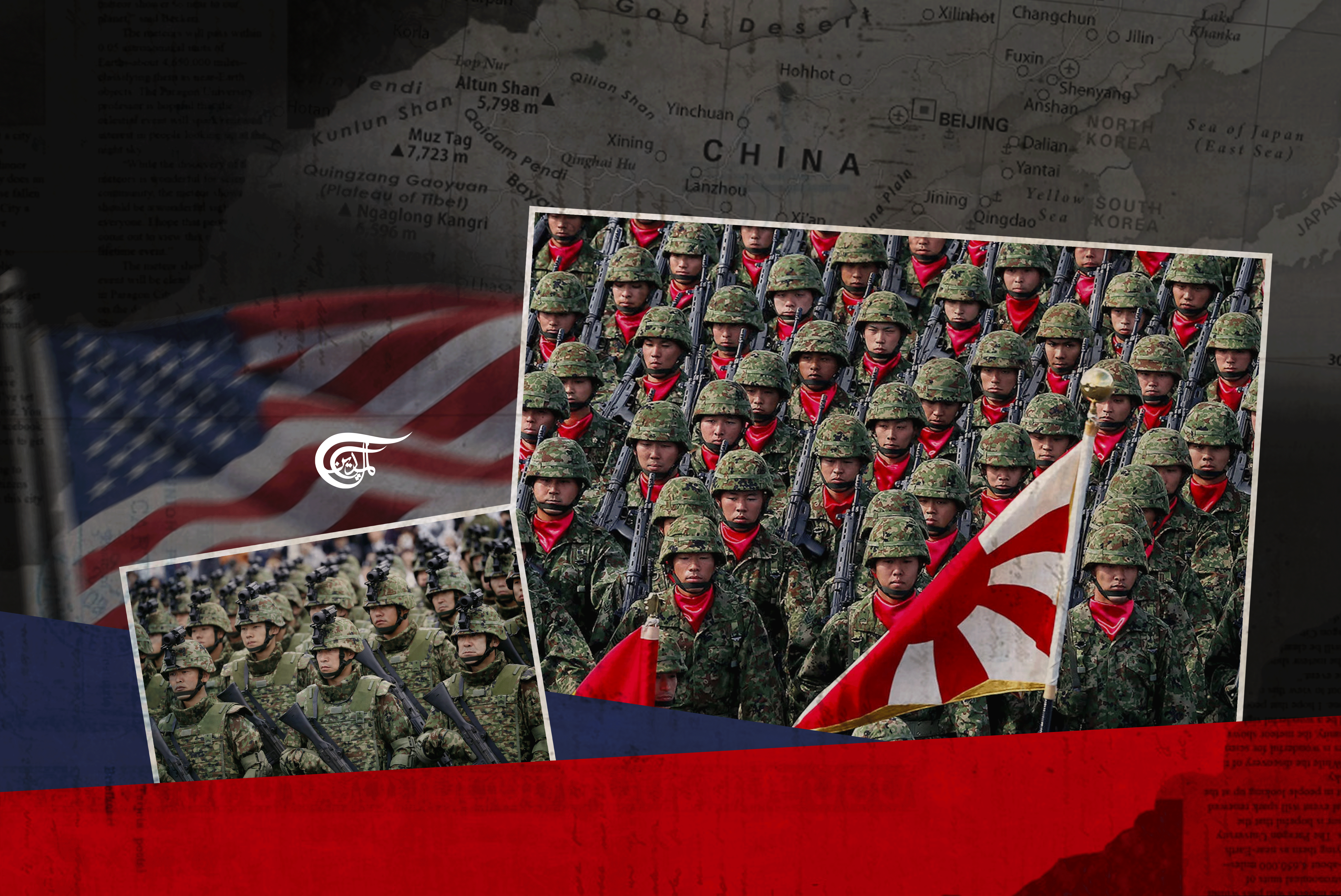As US-China Tensions Rise, Japan Remilitarizes
While US-China relations worsen and war rages in Ukraine, Japan’s taking critical steps to remilitarize, setting the stage for a hot war.
Responding to deepening US-China tensions over Taiwan and worsening geopolitical conditions internationally, Japan is remilitarizing, announcing in late 2022 that it would double its military budget by 2028. Namely, Japan illustrated plans to build military capacity in three key December 2022 documents: the National Security Strategy, the National Defense Strategy, and the Defense Buildup Plan.
While outlining new military strategy and buildup plans, the documents also explain Japan’s reasons for policy shifts, with the National Defense Strategy positing that “[a]mid the most severe and complex security environment since the end of WWII, Japan needs to squarely face the grim reality and fundamentally reinforce Japan’s defense capabilities.” The National Defense Strategy also showcases Japan’s national security concerns about surrounding neighbors, including Russia’s “aggression against Ukraine,” North Korea’s ballistic missile and nuclear arms buildup, and how “China… has intensified its coercive military activities around Taiwan.”
While Japan insists new militarization efforts are in line with senshu boei, its exclusively defense-oriented policy adopted after World War II, adjacent efforts suggest offensive preparations are underway. Mitsubishi’s efforts to bolster the range of Japan’s Type 12 Surface-to-Ship Missile System, for example, will mean Japan can soon strike well within mainland China. Further, in addition to restructuring its tank forces to optimize their mobility, Japan has also established its first amphibious military unit since the World Wars, and is fortifying some of its smaller islands with military bases and troops.
Surrounding nations, especially China, have been weary of Japan’s remilitarization plans. After all, Japan’s recent military decisions may well revive painful memories of its past aggression and cruelty before and during the Second Sino-Japanese war, which many consider World War II’s Pacific Theatre.
Japan’s horrific wartime abuses include the Nanking Massacre, where Japanese troops massacred and raped civilians after capturing China’s then-capital city, likely killing hundreds of thousands. Further, Japan maintained relative silence on Unit 731’s infamous human experiments in Harbin, China, reluctantly admitting the wartime program existed in the 1990s, excavating the site in 2011, and finally releasing many names of those involved in the project in 2018. Historical estimates suggest as many as 300,000 died at Unit 731. And Japanese armed forces heavily exploited hundreds of thousands of Southeastern Asian women who, while called “comfort women,” were effectively kept as sex slaves or otherwise faced frequent sexual abuse.
In light of the crimes’ severity, many allege that Japan’s collective reflections over the past pale in comparison to others’ reconciliation processes, like fellow former Axis power Germany’s. While Japan has apologized for previous atrocities, writer Kim Petersen opines in Dissident Voice that such statements amount to non-apologies:
There is, in fact, no serious will among collective Japanese politicians to apologize…Japanese leaders, to the consternation of aggrieved nations, still visit the Yasukuni Shrine which houses the kami [divine spirits] of Japanese war criminals. History is sanitized. Japanese students are taught a history that elides Japan’s crimes. Japan has even lobbied other governments to remove statues of a comfort woman erected in their jurisdiction — stark reminders of the crimes of the Japanese military.
Amid lukewarm reconciliation efforts and attitudes, recent polling suggests a majority of Japanese people support a bolstered national defense, with The Asahi Shimbun reporting in May 2022 that 64 percent of those polled agreed Japan should strengthen defensive capacities.
Ultimately, Japan’s remilitarization plans posit investment in its partnership with the United States as prospects for global conflict deepen. Japan’s updated National Defense Strategy even highlights the country’s intentions to plan according to its alliance with the US, noting that “[t]he United States this year devised a new National Defense Strategy. It is therefore timely for Japan and the United States to align their respective strategies and promote defense cooperation in an integrated manner.”
But perhaps more accurately, the United States is cashing in on its relationship with its de-facto client state, where Japan remains chronically subservient to American interests. In this case, ongoing developments and hostilities suggest Japan is to assist the US’ sadistic drive for conflict with China.
In fact, recent Financial Times reporting posits a major Japanese role in US preparations for a prospective war with China. Lieutenant General James Bierman, commanding general of the Third Marine Expeditionary Force (III MEF) and of Marine Forces Japan explained to Financial Times that:
A big part [of why we’ve been successful in Ukraine] has been because after Russian aggression in 2014 and 2015, we earnestly got after preparing for future conflict: training for the Ukrainians, pre-positioning of supplies, identification of sites from which we could operate support, sustain operations…. We call that setting the theatre. And we are setting the theatre in Japan, in the Philippines, in other locations.
And another recent Financial Times piece even cited a leaked memo where General Mike Minihan, head of US Air Mobility Command, admitted, “My gut tells me we will fight in 2025.” Meanwhile, multiple American politician visits to Taiwan in violation of US-China diplomatic norms, the recent shooting down of a suspected Chinese balloon off the South Carolina coast, and US trainings of increased numbers of Taiwanese troops all showcase an American eagerness to stir the pot.
Instead of respecting long-term diplomatic standards, such US actions suggest the superpower may well intend to use Taiwan to goad China into conflict, much like an ever-expanding NATO has used Ukraine to encircle Russia. US officials frequently liken Taiwan to Ukraine; as Lara Seligman reported for Politico in May last year, they’ve even been urging Taiwan to “follow Ukraine’s playbook” to counter China.
Responding to ongoing developments, China’s repeatedly signaled that the US must change course as it considers US meddling in Taiwan as interference in China’s internal affairs. China’s President Xi Jinping took a rare direct swipe at the US in early March, saying that “Western countries —led by the U.S.— have implemented all-round containment, encirclement and suppression against us, bringing unprecedentedly severe challenges to our country’s development.” Further, China’s new Foreign Minister Qin Gang announced at his first news conference that the United States has left a “rational path,” and that if it does not change course, “there will surely be conflict and confrontation.”
Despite China’s increasingly dire warnings, western elites continue to drool at prospects for global conflict escalation. US Senator Lindsey Graham (R-South Carolina) even said that, assuming Ukraine receives the proper economic and military supports from the US, they will “fight to the last person.” (Considering the estimated lifespan of Ukrainian soldiers in battle currently stands at about four hours, Graham’s morbid wish may well come true.)
As the American empire sets sights on China, however, it’s clear conflict in Ukraine isn’t enough: the United States is preparing for global conflict. And Japan’s assistance in a prospective US war with China, now the world’s most populated and among the most technologically advanced countries, will likely only deepen the carnage inevitable in a fight between the superpowers.
Unless mass resistance to war or diplomacy can curtail such unprecedented warmongering, explosive conflict appears more likely by the day.

 Stavroula Pabst
Stavroula Pabst
 6 Min Read
6 Min Read











